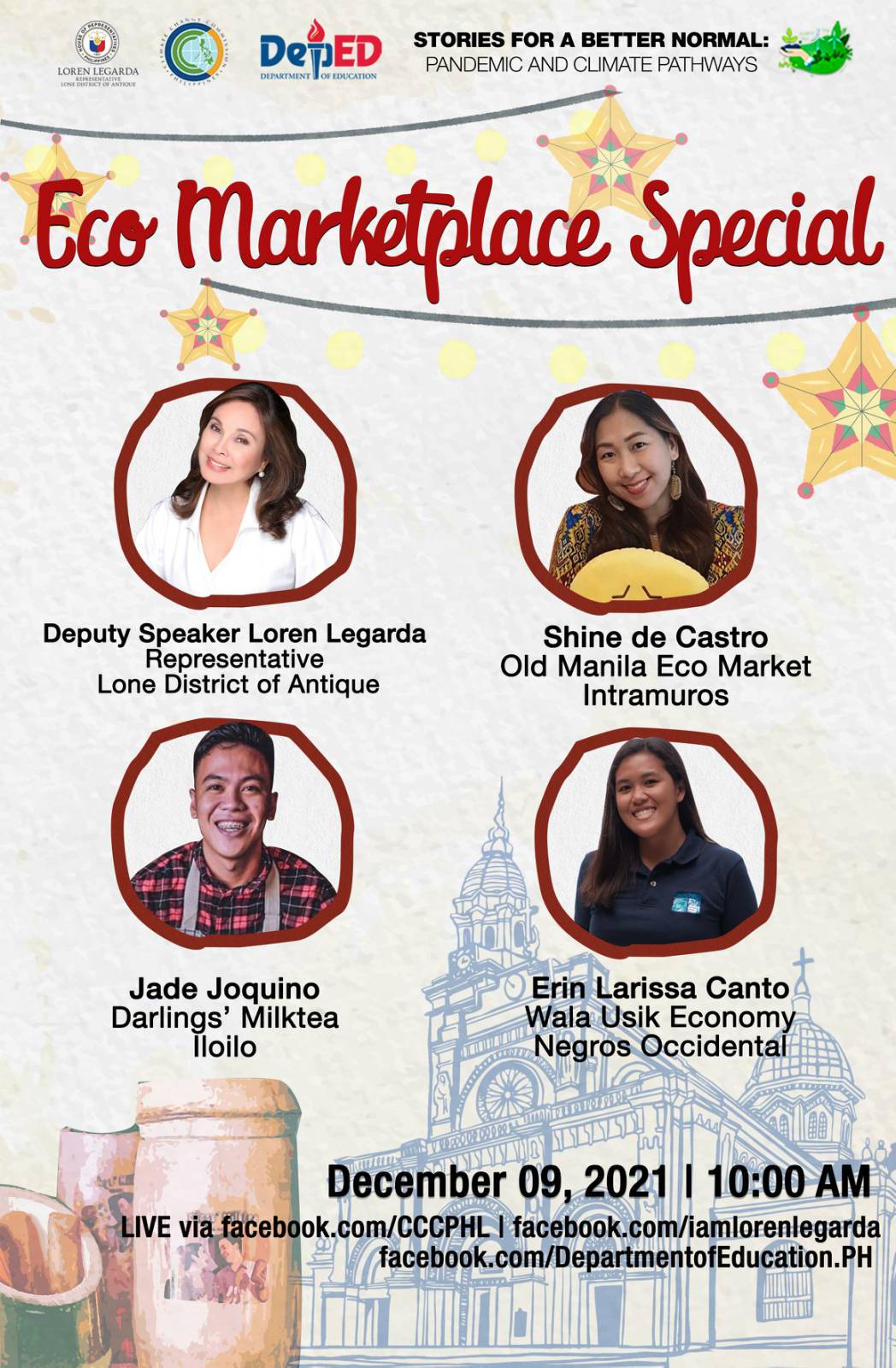
December 06, 2021 Monday

MANILA, 7 December 2021 — The 74th episode of “Stories for a Better Normal: Pandemic and Climate Change Pathways” will feature micro- and social enterprises that implement ecological solid waste management and offer eco-friendly alternatives for gift-giving and celebrations this holiday season.
The online conversation, conceptualized and hosted by three-term former Senator, now Deputy Speaker Loren Legarda, will air on Thursday, 09 December 2021, 10:00 AM via Facebook Live at facebook.com/CCCPhl and fac
Joining the online conversation are Shine De Castro, Co-Founder of Old Manila Eco Market in Intramuros; Erin Larissa Canto, Project Officer from Wala Usik Economy in Bacolod City and Talisay City, Negros Occidental; and Jade Joquiño, Co-Owner of Darlings’ Milktea in Maasin, Iloilo.
Due to the health impacts and the disruptions brought by the pandemic, all sectors, particularly businesses, are prompted to rethink conventional practices and rebuild a more sustainable, resilient and inclusive society.
Environmentally conscious micro- and social enterprises play an important role in reducing waste, conserving the environment, promoting local culture and heritage, creating jobs and economic opportunities in local communities.
The upcoming episode will highlight ways on living sustainably from the daily life into the holiday experiences of the everyday Filipino.
As an online discussion to promote health, environmental consciousness, and climate-adaptive practices, “Stories for a Better Normal” aims to change the mindset of individuals, families, and communities by demonstrating ways in which a ‘better normal’ can be realized within our communities.
This online discussion is organized in partnership between the Office of Deputy Speaker Legarda and the Climate Change Commission, with support from the Department of Education, Philippine Information Agency, Institute for Climate and Sustainable Cities, The Climate Reality Project-Philippines and Mother Earth Foundation.